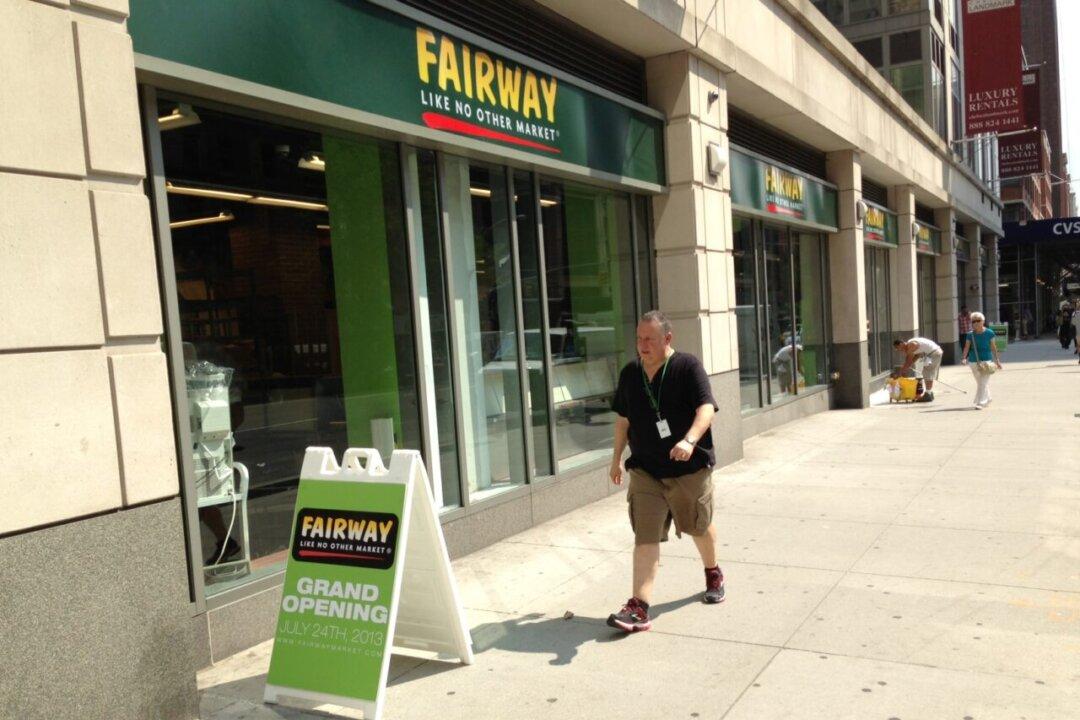Iconic Manhattan store chain Fairway filed for Chapter 11 bankruptcy protection early Thursday morning after a struggle to recover from debt after its prior bankruptcy in 2016. Village Super Market, a publicly-traded company and a member of the ShopRite food cooperative, offered to buy five of Fairway’s stores in Manhattan and its warehouse for $70 million.
The New York Post reported on Tuesday that Fairway was planning to file for a Chapter 7 bankruptcy which would have meant closing and liquidation of all its 14 stores. Fairway denounced this on Twitter the next day, saying, “Despite reports, Fairway Market has no intention to file for Chapter 7 or liquidate all of its stores. All 14 stores remain open for business, offering a complete range of high quality, specialty food products, and we look forward to seeing our customers and employees.”





